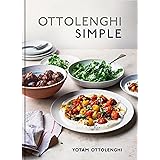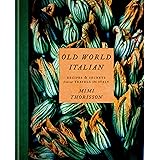The Mediterranean diet consistently earns acclaim as one of the healthiest eating patterns globally, emphasizing whole, unprocessed foods that deliver profound nutritional benefits. The accompanying video provides an excellent summary of the top 10 Mediterranean diet superfoods, highlighting foundational components integral to this lifestyle. Beyond a simple listing, understanding the intricate nutritional science behind these staples reveals their powerful impact on long-term health and wellness.
This deep dive explores each of these Mediterranean superfoods, detailing their unique contributions to health, from supporting robust cardiovascular function to bolstering cognitive acuity and maintaining gut integrity. We will elaborate on why these ingredients are not just common dietary elements but potent sources of vital compounds, collectively underpinning the Mediterranean diet’s renowned efficacy.
Yogurt and Cheese: Fermented Dairy Dynamos
Fermented dairy products, including traditional Greek yogurt and select artisanal cheeses, feature prominently within the Mediterranean dietary framework. These items offer substantially more than simple caloric intake, providing highly bioavailable calcium crucial for bone density and skeletal health. Moreover, their fermentation process yields beneficial probiotics, live microorganisms that significantly contribute to a healthy gut microbiota, modulating immune responses and enhancing nutrient absorption.
The protein content in these dairy forms is exceptional, providing essential amino acids vital for muscle repair and synthesis, a key consideration for maintaining lean body mass. When selecting these foods, prioritizing unsweetened, full-fat Greek yogurt and aged cheeses such as feta or halloumi can maximize their nutritional impact while minimizing unnecessary sugars or additives. These choices offer a complex matrix of beneficial compounds, significantly supporting digestive and systemic health.
Herbs and Spices: Flavor Without Compromise
A cornerstone of Mediterranean cuisine involves the generous application of herbs and spices, a culinary practice that enhances flavor profiles without relying on added sodium or unhealthy fats. Beyond their aromatic contributions, these botanical ingredients are potent sources of phytonutrients and antioxidants, compounds renowned for combating oxidative stress at a cellular level. Oregano, thyme, rosemary, basil, and garlic are particularly noteworthy examples.
Many herbs possess inherent anti-inflammatory properties, playing a critical role in managing chronic inflammatory conditions often associated with modern Western diets. For instance, curcumin in turmeric or carnosic acid in rosemary can significantly impact inflammatory pathways. Incorporating these flavor enhancers liberally across meals represents a simple yet powerful strategy to elevate both the sensory experience and the nutritional density of your Mediterranean diet superfoods.
Fruits: Nature’s Antioxidant Powerhouses
Mediterranean fruit consumption focuses heavily on seasonal, whole fruits, which are abundant in vitamins, minerals, and a vast array of antioxidants. Berries, such as blueberries and strawberries, are particularly celebrated for their anthocyanin content, potent antioxidants linked to improved cognitive function and cardiovascular health. Citrus fruits, like oranges and lemons, deliver copious amounts of vitamin C, essential for immune support and collagen synthesis.
Figs, a less common but equally important Mediterranean fruit, provide remarkable levels of dietary fiber and vital minerals such as potassium and manganese. The natural sugars in whole fruits are balanced by their fiber content, which helps modulate glycemic response, preventing the sharp blood sugar spikes associated with processed sweets. Prioritizing diverse fruits ensures a comprehensive intake of various beneficial plant compounds.
Tomatoes: Lycopene-Rich Essentials
Tomatoes are arguably one of the most iconic Mediterranean diet superfoods, widely consumed in various forms from fresh salads to rich sauces. These versatile fruits are exceptional sources of vitamins C and K, alongside potassium, an electrolyte crucial for blood pressure regulation. However, their true distinction lies in their high concentration of lycopene, a powerful carotenoid antioxidant.
Lycopene is particularly renowned for its cardioprotective effects and its potential role in reducing the risk of certain cancers, especially prostate cancer. Interestingly, the bioavailability of lycopene significantly increases when tomatoes are cooked or processed with a small amount of healthy fat, as found in olive oil-based sauces. This synergy underscores the intelligent design of traditional Mediterranean culinary practices, maximizing nutrient absorption effectively.
Seafood: Essential Omega-3 Fatty Acids
Regular consumption of seafood, especially fatty fish like salmon, mackerel, and sardines, represents a cornerstone of the Mediterranean diet for good reason. These marine sources are exceptionally rich in omega-3 fatty acids, specifically eicosapentaenoic acid (EPA) and docosahexaenoic acid (DHA). These polyunsaturated fats are critical for neurological development and function, alongside powerful anti-inflammatory capabilities.
Omega-3s play a pivotal role in maintaining optimal cardiovascular health, aiding in the reduction of triglycerides, supporting healthy blood pressure levels, and mitigating arterial plaque buildup. In contrast to many modern diets that often lack sufficient omega-3s, the Mediterranean emphasis on fatty fish ensures a robust intake of these essential nutrients. Including two to three servings of these fish weekly provides significant health advantages.
Legumes: Plant-Based Protein and Fiber Powerhouses
Legumes, encompassing beans, lentils, and chickpeas, are indispensable components of the Mediterranean diet, serving as outstanding plant-based protein sources and providing an abundance of dietary fiber. This combination promotes sustained satiety, aiding in weight management by reducing overall caloric intake without sacrificing nutritional value. Furthermore, their complex carbohydrates ensure a steady release of glucose, helping to stabilize blood sugar levels.
The fiber in legumes also acts as a prebiotic, nourishing beneficial gut bacteria and supporting a thriving gut microbiota. Regular consumption of these affordable and versatile Mediterranean superfoods is associated with improved lipid profiles, lower blood pressure, and a reduced risk of chronic diseases. Incorporating them into stews, salads, or spreads like hummus effectively boosts both protein and fiber intake.
Whole Grains: Sustained Energy and Nutrient Delivery
Unlike refined grains stripped of their nutritional value, whole grains remain intact, retaining their bran, germ, and endosperm. This preservation ensures a rich supply of essential nutrients including B vitamins, magnesium, iron, and selenium, alongside an impressive fiber content. Foods such as whole wheat bread, barley, oats, farro, and bulgur are frequently consumed within the Mediterranean eating pattern.
The high fiber in whole grains contributes to digestive regularity and helps to lower cholesterol levels, significantly contributing to cardiovascular health. Moreover, their lower glycemic index compared to refined grains means they provide sustained energy release, preventing energy crashes and promoting stable blood glucose. Embracing whole grains represents a strategic shift towards more nutrient-dense carbohydrate sources, vital for comprehensive wellness.
Nuts and Seeds: Healthy Fats and Micronutrient Boosters
Nuts and seeds are concentrated sources of healthy fats, including monounsaturated and polyunsaturated varieties, along with plant-based protein and dietary fiber. Almonds, walnuts, pistachios, chia seeds, and flax seeds are commonly featured Mediterranean superfoods. Walnuts, in particular, are notable for their alpha-linolenic acid (ALA), a plant-based omega-3 fatty acid crucial for heart health.
Beyond healthy fats, these dense foods supply an array of vitamins and minerals, such as vitamin E, magnesium, zinc, and selenium, which function as antioxidants and cofactors in numerous enzymatic reactions. Despite their caloric density, moderate consumption of nuts and seeds is consistently linked to improved cardiovascular outcomes, better blood sugar control, and enhanced satiety. A small handful daily can significantly boost nutrient intake and overall health.
Leafy Greens: Micronutrient Powerhouses
Leafy green vegetables like spinach, kale, Swiss chard, and collard greens are nutritional giants within the Mediterranean diet, packed with an extraordinary density of vitamins, minerals, and fiber for minimal calories. They are exceptional sources of vitamin K, essential for blood clotting and bone health, alongside significant amounts of vitamins A, C, and folate. Their chlorophyll content and various phytonutrients contribute to their powerful antioxidant and anti-inflammatory effects.
Regular intake of these verdant vegetables is strongly associated with a reduced risk of chronic diseases, including heart disease and certain cancers, while also supporting cognitive function. The fiber in leafy greens aids digestion and contributes to feelings of fullness, making them an excellent choice for weight management. Incorporating them into every meal, whether raw in salads or lightly cooked, maximizes their potent health benefits.
Olives and Extra Virgin Olive Oil: The Mediterranean Gold Standard
At the apex of Mediterranean diet superfoods stand olives and, more importantly, extra virgin olive oil (EVOO). This liquid gold is the primary fat source in the Mediterranean region, celebrated for its richness in monounsaturated fatty acids, predominantly oleic acid. These healthy fats are crucial for maintaining healthy cholesterol levels, specifically lowering LDL (bad) cholesterol while preserving HDL (good) cholesterol.
However, the benefits of EVOO extend far beyond its fat composition. It is also packed with powerful antioxidants, including polyphenols and vitamin E, which exert significant anti-inflammatory effects throughout the body. These compounds protect cells from oxidative damage, a key factor in aging and chronic disease development. Using extra virgin olive oil as a primary cooking fat and a finishing oil provides consistent anti-inflammatory and cardioprotective benefits, solidifying its status as an indispensable component of the Mediterranean eating pattern.











